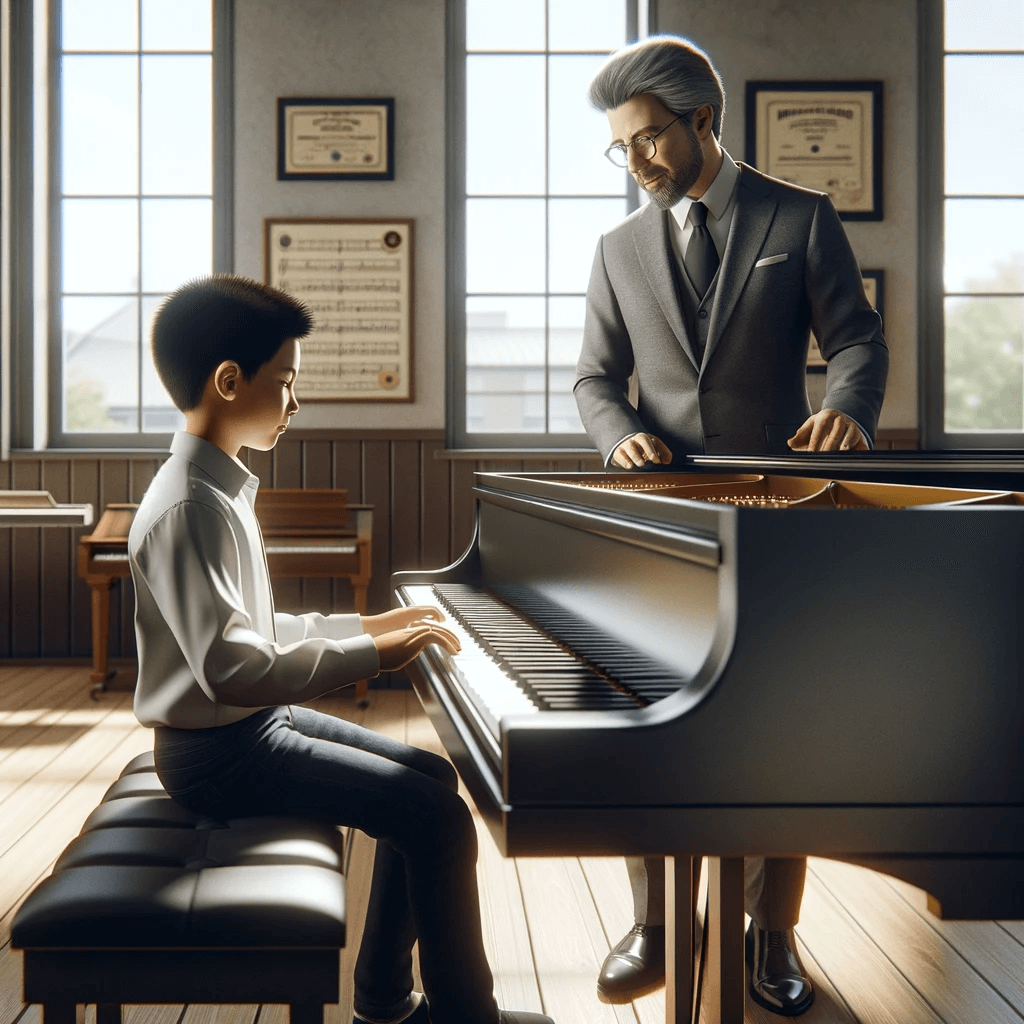
Introducing children to the world of music through piano lessons can have a profound and comprehensive impact on their development. Musical education, particularly piano lessons, not only opens up the world of art and culture to a child
but also aids in improving cognitive abilities, strengthening discipline, and developing social skills.
Cognitive Development and Academic Advantages
Studies show that musical education, especially playing the piano, actively stimulates various brain areas responsible for memory, attention, and spatial-temporal abilities. Regular practice helps children better absorb and remember information, positively affecting their academic performance at school.
Personal Qualities and Discipline Development
Piano lessons require perseverance and regular effort from children. This instills discipline and the ability to achieve set goals. Students learn to concentrate, plan their time, and evaluate their achievements. These skills prove extremely useful in many aspects of life, including education and personal development.
Social Skills and Self-Expression
Playing the piano also fosters the development of social skills. Children who regularly engage in music are better at expressing their emotions and feelings and learn to understand and respect the feelings of others. Participation in musical groups and concerts enhances communicative skills and the ability to work in a team.
Choosing a Music School: What to Consider
When selecting a music school for your child, it’s important to consider the qualifications of the teachers, teaching methodologies, and the atmosphere in the classroom. The instructor should not only possess a high level of professionalism but also be able to connect with each student, inspiring and motivating them.
The Importance of an Individualized Approach
An individualized approach in teaching piano is of immense importance. Each child is unique, and methods that work for one may not be effective for another. A attentive teacher considers the interests, inclinations, and learning pace of each student, making the learning process not only effective but also engaging and exciting.
The Significance of Early Musical Education
Beginning musical education at an early age can have a long-term positive impact on a child’s development. Music stimulates intellectual, emotional, and creative development. Children who start learning music from an early age often show better academic results and social skills.
Conclusion
Piano lessons in a music school for children are not just about learning to play a musical instrument. They are a path to the development of a well-rounded personality, contributing to the strengthening of cognitive abilities, social skills, and creative potential. Investing in your child’s musical education is an investment in their future, providing them with skills and confidence that will be useful throughout their life.
 Introducing children to the world of music through piano lessons can have a profound and comprehensive impact on their development. Musical education, particularly piano lessons, not only opens up the world of art and culture to a child but also aids in improving cognitive abilities, strengthening discipline, and developing social skills.
Introducing children to the world of music through piano lessons can have a profound and comprehensive impact on their development. Musical education, particularly piano lessons, not only opens up the world of art and culture to a child but also aids in improving cognitive abilities, strengthening discipline, and developing social skills.
 Introducing children to the world of music through piano lessons can have a profound and comprehensive impact on their development. Musical education, particularly piano lessons, not only opens up the world of art and culture to a child but also aids in improving cognitive abilities, strengthening discipline, and developing social skills.
Introducing children to the world of music through piano lessons can have a profound and comprehensive impact on their development. Musical education, particularly piano lessons, not only opens up the world of art and culture to a child but also aids in improving cognitive abilities, strengthening discipline, and developing social skills.
